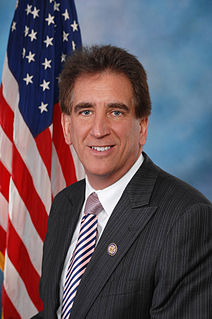A Quote by Eric Adams
We know the costs of failure. There is now no excuse for government - at any level - not to invest in a safer, fairer future for our cities.
Related Quotes
We don't know what our health care costs are going to be. We don't know what our tax rates are going to be. We don't know what our interest rates are going to be. We don't know what our energy costs are going to be. All these uncertainties are being driven by the Government's agenda. What we really need to do is get Government to step back.
...our societies appear to be intent on immediate consumption rather than on investment for the future. We are piling up enormous debts and exploiting the natural environment in a manner which suggests that we have no real sense of any worthwhile future. Just as a society which believes in the future saves in the present in order to invest in the future, so a society without belief spends everything now and piles up debts for future generations to settle. "Spend now and someone else will pay later."
No one from Charter Cities, can have any financial interest in any project in Honduras; no one can accept consulting fees from the Honduran government; no one can accept reimbursement for travel expenses or accommodations; no one can provide advice to any for-profit entity that wants to invest in Honduras.
To be young and aware is to know you’re being lied to; to know that a bright green future is possible; to know that we can reimagine the world, rebuild our cities, redesign our lives, retool our factories, distribute innovation and creativity and all live in a world that is not only better than the alternative, but much better than the world we have now.
Any attempts by any government to change Community legislation to its own wishes are doomed to failure following the extension of policy areas now subject to majority voting... In our opinion, this must have serious implications for the traditional view of Parliament as a legislative body sovereignty.

































